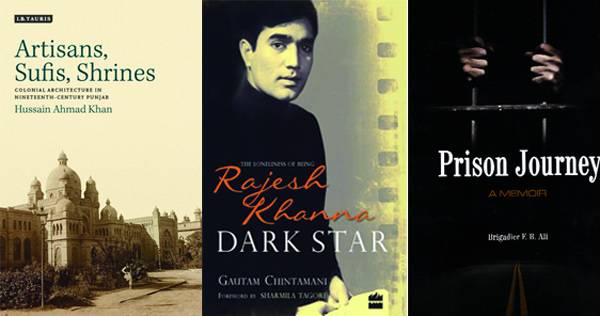
Artisans, Sufis, Shrines: Colonial Architecture in Nineteenth-Century Punjab
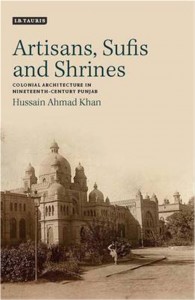 Hussain Ahmad Khan
Hussain Ahmad Khan
I B Tauris [hardback], 2015
PRs 10,940
In nineteenth-century Punjab, a cultural tug-of-war ensued as both Sufi mystics and British officials aimed to engage the local artisans as a means of realizing their ideological ambitions. When it came to influence and impact, the Sufi shrines had a huge advantage over colonial art institutions such as the Mayo School of Arts in Lahore. The mystically inspired shrines, built as a statement of Muslim ruling ambitions, were better suited to the task of appealing to local art traditions. By contrast the colonial institutions, rooted in the Positivist Romanticism of the Victorian West, found assimilation to be more of a challenge. Hussain Ahmad Khan examines the Sufi-artisan relationship within the various contexts of political revolt, the decline of the Mughals and the struggle of the Sufis to establish an Islamic state. He argues that Sufi shrines were initially constructed with the aim of affirming a distinct ‘Muslim’ identity while the art institutions established by colonial officials attempted to promote eclectic architecture representing the ‘British Indian empire.’ This important book sheds new light on the dynamics of power and culture in the British Empire.
Prison journey: A memoir
 Brig. F B Ali
Brig. F B Ali
Vanguard [hardback], 2014
PRs 795
Brig. Ali was a rising star in the Pakistan army when, in 1969, General Yahya Khan declared martial law and took over the country. Disheartened at the direction in which Pakistan was heading and his inability to do anything about it, the author contemplated resigning, but the 1971 war with India intervened. Given an important combat command shortly before it began, he witnessed how badly this disastrous war was mismanaged by the military regime. The resulting debacle drove him to initiate and lead the army action that forced General Yahya Khan to hand over power to Zulfikar Ali Bhutto, who had won the 1970 election. The usual fate of kingmakers befell him: in 1972 he was retired from the army and a few months later arrested and tried on charges of trying to overthrow the government. Narrowly escaping a death sentence, he spent over five years in prison before being released, following Bhutto’s ouster in another military coup. This memoir is an insider’s account of key events of that decade, including the 1971 India-Pakistan war and the troubles in East Pakistan that led to the creation of Bangladesh. It is also a poignant tale of courage and endurance in the face of adversity.
Dark Star: The Loneliness of Being Rajesh Khanna
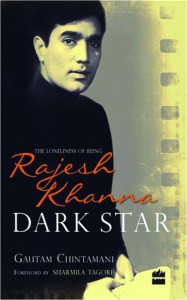 Gautam Chintamani
Gautam Chintamani
HarperCollins [hardback], 2014
PRs 995
Born in a time when film stars were truly larger than life, Rajesh Khanna was destined to become not just any film star, but one for whom the term ‘superstar’ was coined. Born to middle-class parents, the actor was adopted and indulged by rich relatives. By the time he won the Filmfare and United Producers Talent Contest, he was already famous for being the struggler who drove an imported sports car. With 17 blockbuster hits in succession and mass adulation rarely seen ever before or since, the world was at Khanna’s feet. And then, in matter of months, it all changed. Mirroring his meteoric rise, the actor’s career hit a downward spiral just three years after Aradhana (1969) and never recovered. Chronicling the films and the times of Rajesh Khanna, Dark Star looks at the phenomenon of an actor who redefined what it meant to be a ‘film star’.
The Book of Strange New Things
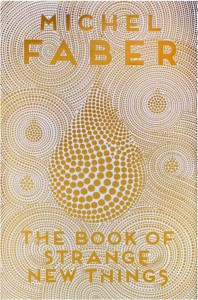 Michel Faber
Michel Faber
Canongate [paperback], 2014
PRs 1,295
When Peter, a devoted man of faith, is called to the mission of a lifetime – one that takes him galaxies away from his wife, Bea – he becomes immersed in the mysteries of an astonishing new environment overseen by an enigmatic corporation known only as USIC. His work introduces him to a seemingly friendly native population struggling with a dangerous illness and hungry for Peter’s teachings – his Bible is their “book of strange new things.” But Peter is rattled when Bea’s letters from home become increasingly desperate: typhoons and earthquakes are devastating whole countries, and governments are crumbling. Suddenly, a separation measured by an otherworldly distance, and defined both by one newly discovered world and another in a state of collapse, is threatened by an ever-widening gulf that is much less quantifiable. While Peter is reconciling the needs of his congregation with the desires of his strange employer, Bea is struggling for survival. Their trials lay bare a profound meditation on faith, love tested beyond endurance, and our responsibility to those closest to us.
Recalling the Caliphate: Decolonization and World Order
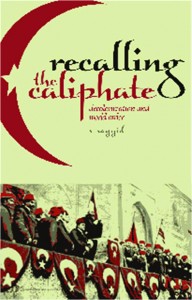 S Sayyid
S Sayyid
Hurst & Company [paperback], 2014
PRs 3,585
As late as the last quarter of the twentieth century, there were expectations that Islam’s political and cultural influence would dissipate as the advance of westernization brought modernization and secularization in its wake. Not only has Islam failed to follow the trajectory pursued by variants of Christianity, namely confinement to the private sphere and de-politicization, but it has also forcefully reasserted itself as mobilizations in its name challenge the global order in a series of geopolitical, cultural and philosophical struggles. The continuing relevance of Islam suggests that global history cannot simply be presented as a scaled-up version of that of the West. Quests for Muslim autonomy present themselves in several forms – local and global, extremist and moderate, conservative and revisionist – in the light of which the recycling of conventional narratives about Islam becomes increasingly problematic. Recalling the Caliphate engages critically with the interaction between Islam and the political in context of a postcolonial world that continues to resist profound decolonization.

